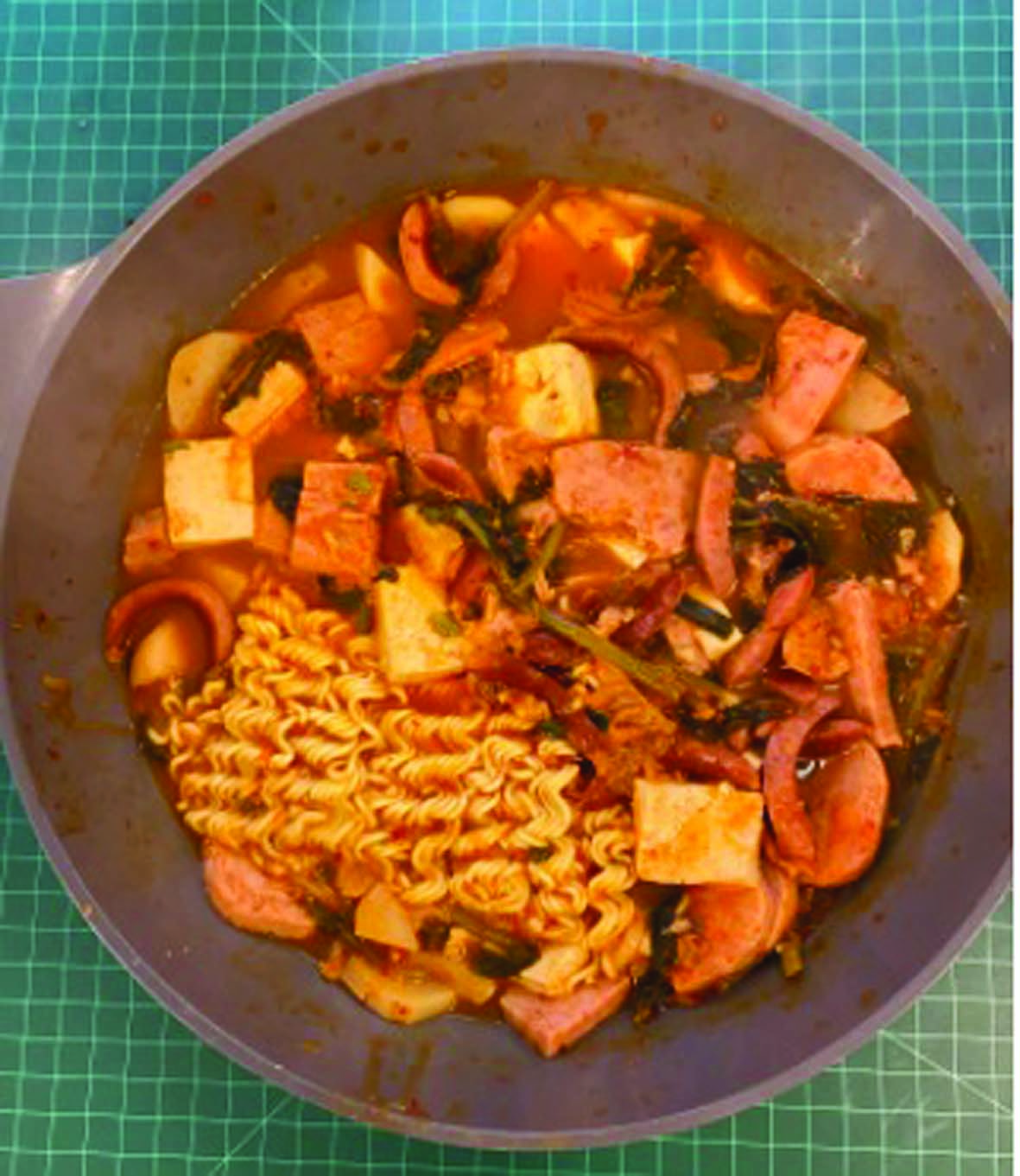With all the disorganization going on in the world right now, one may not think twice about the importance of cultural foods. Yes, food is important because it keeps us alive and makes our taste buds happy, but it’s more than that. Ethnic cuisines make up our sole identity, even if we may not realize it at first.
Budae jjigae , or literally “army base stew,” is perhaps the heart of my family’s taste palette. I’ve been eating it since I was young, and I’m still not the slightest bit tired of it. I’ve grown up eating Korean food for as long as I can remember. Maybe the occasional hamburger or spaghetti, but it always came back to Korean food. Even when I am sick of the traditional Korean dinner, there I am, hungrily scooping every last grain of rice and scraping the final bit of the side dishes. So it’s no surprise to know that I still love budae jjigae.
Budae jjigae is a dish developed after the Korean war when food was extremely scarce, inclining citizens to become creative to survive. Thus, the birth of this delectable dish was a concoction of scrounged surplus processed foods from the US military bases added to the limited supply of Korean foods. Of course, when my parents first explained the stew’s history, I was much too young to understand the sheer significance and its relevance, but now I understand.
I know the importance of unity within my family, and one thing I’ve learned is that budae jjigae does just that. My parents and I will eat this dish no matter what season it is; this dish is bound to warm us from our heads to toes during the winter. And during the summer? Well, Koreans enjoy eating hot or spicy foods in the heat; it is supposedly a way to release inner body heat and sweat. So, essentially, my childhood has been scattered with countless appearances of budae jjigae, summer or winter.
Besides bringing my family together during feasting, budae jjigae makes up an important part of me, personally. Just like how this dish is a perfect fusion between Korean foods and American styled processed foods, I am an amalgamation of my parents’ Korean blood and my own American lifestyle. I am an Asian American millennial, having been taught to follow and live by Korean traditions and practices. Yet, at the same time, those same beliefs are being intertwined with the different American cultural beliefs I learn more about each day.
Realizing how big of a part Korean food plays in my life has made me become more appreciative of the delicacies I am given everyday. Our society is in shambles and we’ve said sayonara to our holiday plans with loved ones, but there is still plenty of jolly to go around this Christmas season. Take advantage of the endless facets of your culture and bond with your family over the foods that have made you who you are today!

